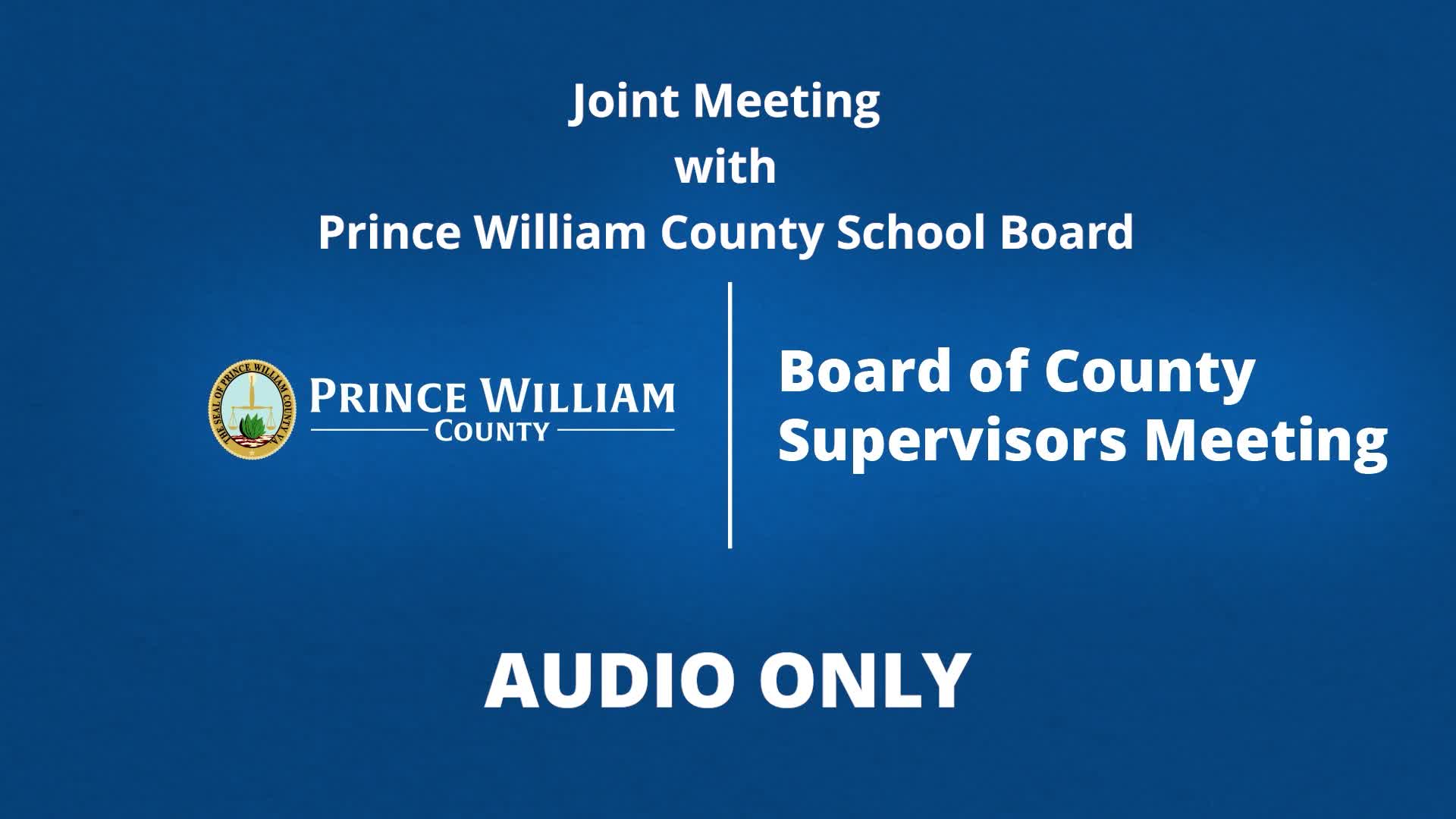Prince William officials warn federal shutdown and HR 1 changes could disrupt school meals, housing and social services
Get AI-powered insights, summaries, and transcripts
Subscribe
Summary
County and school staff told supervisors and school board members that the federal government shutdown and the proposed HR 1 changes to SNAP and Medicaid could reduce federal reimbursements and create cash‑flow and service risks for Prince William County and Prince William County Schools.
Prince William County leaders and school officials said Wednesday that the federal government shutdown and proposed changes in HR 1 pose near‑term cash‑flow and service risks for school nutrition, housing and social‑service programs.
Dante Sinclair, director of management and budget for Prince William County, told the joint meeting of the Board of County Supervisors and the school board that mandatory federal benefits such as Social Security and Medicare should continue but that services funded by annual appropriations may be interrupted: “Mandatory spending programs, I'd like to emphasize, will continue.” He warned that essential employees would continue to work but “without pay” during a shutdown and that some federal contractors are unlikely to receive pay during the interruption.
The county and schools rely on direct federal funding that Sinclair said totals about $169,000,000: roughly $92,000,000 to the schools and $77,000,000 to county government. He said roughly $44,000,000 of the schools’ federal funding supports school lunch and breakfast programs and about $48,000,000 is in the schools’ operating budget. On the county side, Sinclair said nearly $50,000,000 of federal dollars fund housing and community development and about $20,000,000 fund social services.
Why it matters: the shutdown and HR 1 changes could interrupt reimbursements and force local cash‑flow decisions. Phyllis Jennings, director of the Department of Social Services, told the boards HR 1 would change the federal/state match and work‑requirements for SNAP and Medicaid and that Virginia faces higher state share obligations under the bill as drafted. “Virginia is required to match the federal SNAP benefit at 25%,” Jennings said, describing an administrative‑cost match that she said raises a potential new state liability. She said the department projects a possible $1,600,000 deficit in local lines tied to the SNAP administrative match and that Virginia’s current SNAP error rate sits at about 11.5 percent.
Jennings said some SNAP and nutrition programs have prior‑year carryover that could cover benefits in the short run, but other programs face earlier exhaustion: she said WIC funding “may be exhausted in, through next week” if federal interruptions continue. On school nutrition, school division staff said their nutrition fund balance and state flexibility should allow schools to continue feeding students in the short term but warned of possible cash‑flow problems for reimbursements if the shutdown persists beyond October.
Local counts and exposure: Sinclair provided workforce numbers for the region and county, noting roughly 450,000 federal workers in the region (March 2024 estimate) and about 31,000 federal government employees in Prince William County (February 2025 figure). He said the region also includes about 400,000 federal contractors — numbers that affect regional economic and contractor pay exposure.
On Medicaid, Jennings said Prince William had nearly 100,000 constituents who had received Medicaid benefits (data cited as of a 2026 snapshot) and about 26,000 people in the Medicaid expansion cohort; under HR 1 she said expansion recipients could face semiannual redeterminations and possible work requirements that would require beneficiaries to work or participate 20 hours a week or risk benefit limits.
Staff cautioned that many details remain uncertain and depend on federal action. Sinclair said some agencies in a prior long shutdown were able to continue services for a time using prior‑year appropriations, but he emphasized that “continuation of services is not guaranteed and is contingent upon remaining funding availability on a case‑by‑case basis.” The county’s Office of Management and Budget will continue daily monitoring and contingency planning, Sinclair said.
No board votes or policy changes were taken at the meeting. Supervisors and school board members urged continued joint advocacy with the Commonwealth and federal delegation to protect school and social‑service funding and asked staff to keep both governing bodies informed as the fiscal situation evolves.
